Over the last few decades, society has dramatically changed. Where it used to be common to have at least one hunter in your extended family, or at least to know a couple in your local community, there’s a growing number of people who reach adulthood without ever coming into contact with a hunter.
As a result, we now have a whole generation of adults who don’t hunt, don’t know why you would hunt, and wouldn’t know where to start learning more about hunting even if they were interested.
 Some of these people have even become vehemently opposed to the very idea of hunting and may even lobby against it, having convinced themselves it is a form of animal cruelty.
Some of these people have even become vehemently opposed to the very idea of hunting and may even lobby against it, having convinced themselves it is a form of animal cruelty.
What kind of hunting ambassador are you?
We can’t really blame them for being opposed to hunting if they have never met a positive role model, or worse, if the only hunters they have met are unethical cowboys – you know, the ones that love to shock people by talking about shooting a bunch of animals, or posting gory photos on social media of animals with their heads blown off. Unfortunately, it is this type of behaviour that is fuelling a lot of the anti-hunting sentiment and making people more willing to believe the worst case scenarios.
As hunters, we have a responsibility to change the way hunting is perceived by the general public. We have to get better at sharing the positive side of our lifestyle, not just the blood and gore. We have to get smarter in how we counteract the negativity, which is most often borne out of emotion, not facts. We have to be proactive in introducing new people to the lifestyle.
While the most obvious place to start would be with the next generation – our kids and grandkids – don’t forget the adults in our lives. Most of us are surrounded by non-hunting family members, friends, neighbours, work colleagues, associates and people we come across in our daily lives.
Start with meat
You don’t have to avoid talking about hunting out of fear you might offend someone. Less than 5 percent of the world’s population is vegetarian, and less than 0.5 percent are hardcore vegan. That means 95 percent – or a whopping 7.15 billion people – eat some form of meat or use animal products in their day to day life. Even if they have only ever purchased their meat from a supermarket, have no personal connection or conscious thought about how it got there, and prefer not to think about an animal dying for their food, somewhere in the recesses of their minds, they are aware of it and have made the conscious decision that they’re okay with it.
Sometimes just gently reminding people that thousands of animals have died for their needs is enough to start a respectful conversation about the reasons you personally choose to hunt.
Lunch date with an ‘anti-hunter’
For example, I remember a lunch date I had with a work colleague, where the topic of hunting came up. At first, she told me she was completely opposed to hunting as she didn’t believe we should kill innocent animals. She considered herself an anti-hunter. I pointed to the steak on her plate and playfully suggested the cow probably didn’t consider itself guilty. She conceded that was probably true, but as the cow was bred to be eaten, it wasn’t the same as killing a wild animal. I spent a few minutes comparing the life and death of a cow compared to the life and death of a wild deer, and then asked her which seemed like the more humane way. I explained that most livestock are given antibiotics and growth enhancers, while wild game is probably the most organic and sustainable meat available.
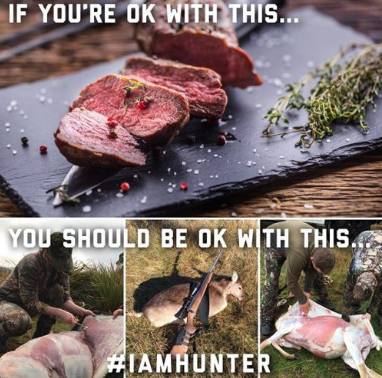
“What do you mean by sustainable?” she asked.
That opened the door for me to tell her about the huge number of wild deer in Australia, the damage that they cause to the environment, how much impact their numbers have on our farmers, and how much money our governments spend trying to reduce their numbers.
“Okay, maybe hunting isn’t that bad if you’re just hunting deer and problem animals,” she said sheepishly. “But you don’t hunt exotic animals, do you? Like elephants, and giraffes. That’s bad, isn’t it?” she asked, a little less certain of herself.
“Well, I have never personally hunted an elephant or a giraffe, but what we consider exotic is another person’s pest – no different to the way we manage deer numbers or cull kangaroos.”
She frowned at me. “How could an elephant possibly be considered a pest?”
 I spent the next ten minutes telling her about elephant populations in Southern Africa, and how some areas have so many elephants in a small area, that they are destroying the environment and killing humans, that a single elephant consumes around 250kgs of food and drinks almost 200 litres of water each day.
I spent the next ten minutes telling her about elephant populations in Southern Africa, and how some areas have so many elephants in a small area, that they are destroying the environment and killing humans, that a single elephant consumes around 250kgs of food and drinks almost 200 litres of water each day.
“Take Kruger National Park for example,” I told her. “The park currently holds 13,000 elephants – 10,000 more than the park held in 2007 and 5,000 more than the land can sustain without impacting other animal species. Just doing some simple maths, that’s an extra 1.25 million kilograms of food and 1 million litres of water that is being taken from the land each and every day. Don’t you think that’s an awful lot of pressure on the natural environment?”
“Westerners pat themselves on the back for successfully lobbying African governments to protect all elephants, but they have no idea how detrimental their actions have actually been to other animal species or how much it has impacted the local villages. Not only are we taking away one of their largest sources of protein, we are putting them into direct conflict with thousands of enormous elephants. You could say that we are literally killing Africa with kindness.”
“Hang on. You’re not saying people eat elephants, are you?”
“Absolutely. If an elephant is hunted, that meat doesn’t just rot on the ground. The meat is either donated or sold to local villages, and can feed them for months. The problem is not with hunting. It’s with illegal and unregulated poaching. We just tend to bundle them together and see them as the same issue.”
“Wow, I had no idea that hunting was such a complex subject,” she admitted.
Most opposition is borne out of ignorance
And therein lies the truth. Most opposition to hunting isn’t borne out of hate or even out of in-depth knowledge about hunting. It’s borne out of blissful ignorance.
The average person has no idea how much death takes place right underneath their noses – how livestock are killed, how many wild animals the government culls each year, how many animals and pests their local council poisons and traps every single day just to keep them from being plunged into the next Black Plague.
 They have no idea that something as simple as a fully functioning airport requires birds being kept off the runway – most often by hunters. They have no idea that those cruelty-free plants they eat are covered in animal blood. After all, it’s called crop protection hunting for a reason.
They have no idea that something as simple as a fully functioning airport requires birds being kept off the runway – most often by hunters. They have no idea that those cruelty-free plants they eat are covered in animal blood. After all, it’s called crop protection hunting for a reason.
And the only way they are going to hear the truth is from a hunter who knows firsthand.
Be the voice of reason
Don’t be afraid to speak up, to share what you do, and more importantly, why you do it.
When it comes to my family, there are very few people who don’t know that hunting is a big part of our lives. They see it on our social media profiles, they hear us talking about it, and if they come to our house, they’re going to see the heads on our walls, the hides on the floors, and experience it in the foods we eat.

We love sharing game meat with family and friends, whether raw for them to cook at home, or as a meal. We have even taken kangaroo and venison along to a church BBQ.
We wear our I Am Hunter tshirts down the street, knowing that while it may tick off the odd anti or two, it has also created many opportunities to have conversations with perfect strangers about the benefits of hunting.
I recently had a lady in her seventies stop me to ask about my shirt, and tell me what a great job we do. She also told me how much she enjoyed eating game meat when she was younger.
Don’t have pre-conceived ideas of who will and won’t be open either.
 Did you know that the two fastest growing demographics in the hunting industry are young women and those seeking a more sustainable way of eating that doesn’t involve giving up meat!
Did you know that the two fastest growing demographics in the hunting industry are young women and those seeking a more sustainable way of eating that doesn’t involve giving up meat!
We’ve had productive conversations about hunting with all sorts of people – everyone from vegans to professionals to old ladies. In fact, I was surprised to hear from another old work colleague a while back – one who had spent his whole life flitting between being a vegetarian and a full-blown vegan. He even left the workplace to go work at an animal shelter. If I’d been asked to rank all the people I knew from those most likely to be interested in hunting, to those least likely, Chris would have been right down the bottom of that list.
But he messaged me out of the blue and asked me for advice on how to reintroduce meat to his diet! He’d seen a lot of my posts on social media about hunting, and although he’d never commented on any of them, he’d been following everything I wrote.
He told me that he didn’t want to just go and buy meat from the supermarket, but wanted to find wild sourced game meats and thought I might know where he could buy it.
I invited him and his wife over, and we had a great chat with them about hunting, and sent them on their way with a few bags of venison and wallaby meat to try.
Now Chris is keen to learn to hunt himself so he can go out and source his own game meats.
Don’t be afraid to speak up about hunting or to share about it on your social media profiles. You really never know who you might influence or if you could be the one to encourage someone to take up hunting.
What is I Am Hunter?
I Am Hunter wants to change the way hunting is perceived and to change the conversation from a negative one driven by anti-hunters to a positive one led by hunters.
Our goal is to help hunters become positive role models and ambassadors for hunting, while simultaneously helping non-hunters understand why hunting is important.
You can become a supporter and help us achieve our goal and spread a positive message about hunting with the wider community.
Related content
Our other channels
Follow us on Facebook
Follow us on Instagram
YouTube
Subscribe to our YouTube channel.
Get our newsletter
Get our free monthly newsletter direct to your inbox
Listen on iTunes
Listen to our podcast on iTunes.
TV series
Watch I Am Hunter episodes on My Outdoor TV (MOTV)
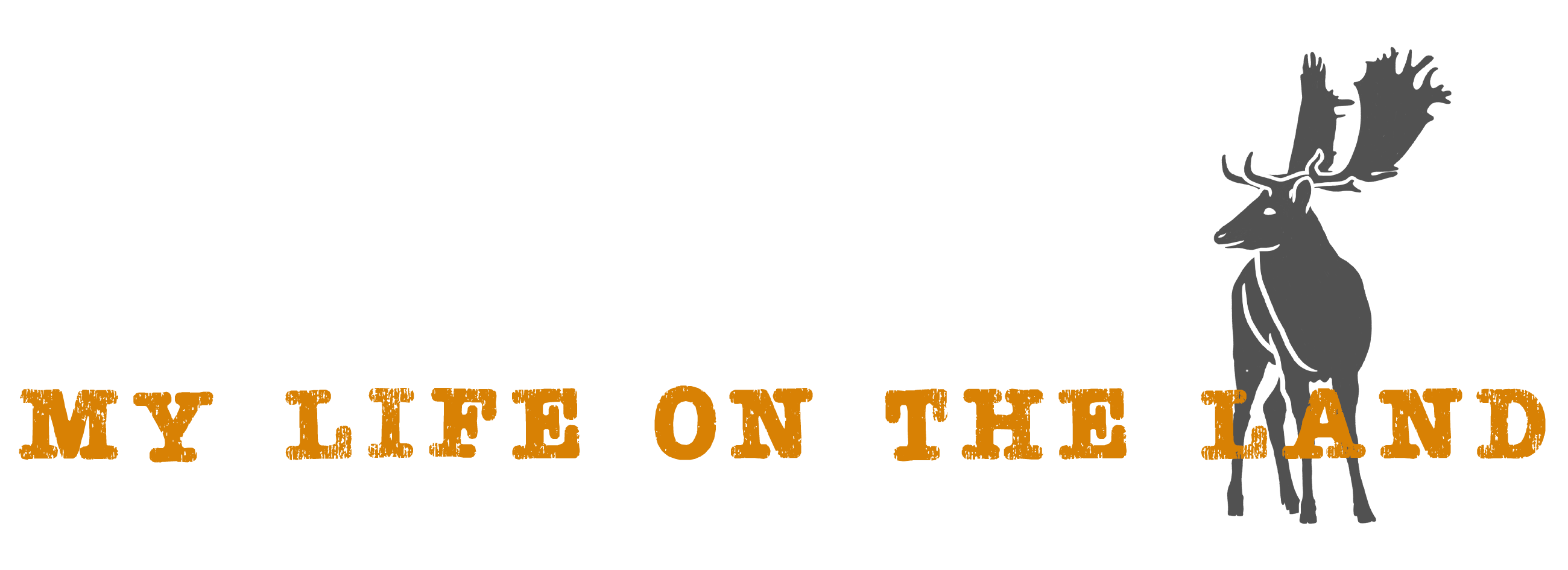
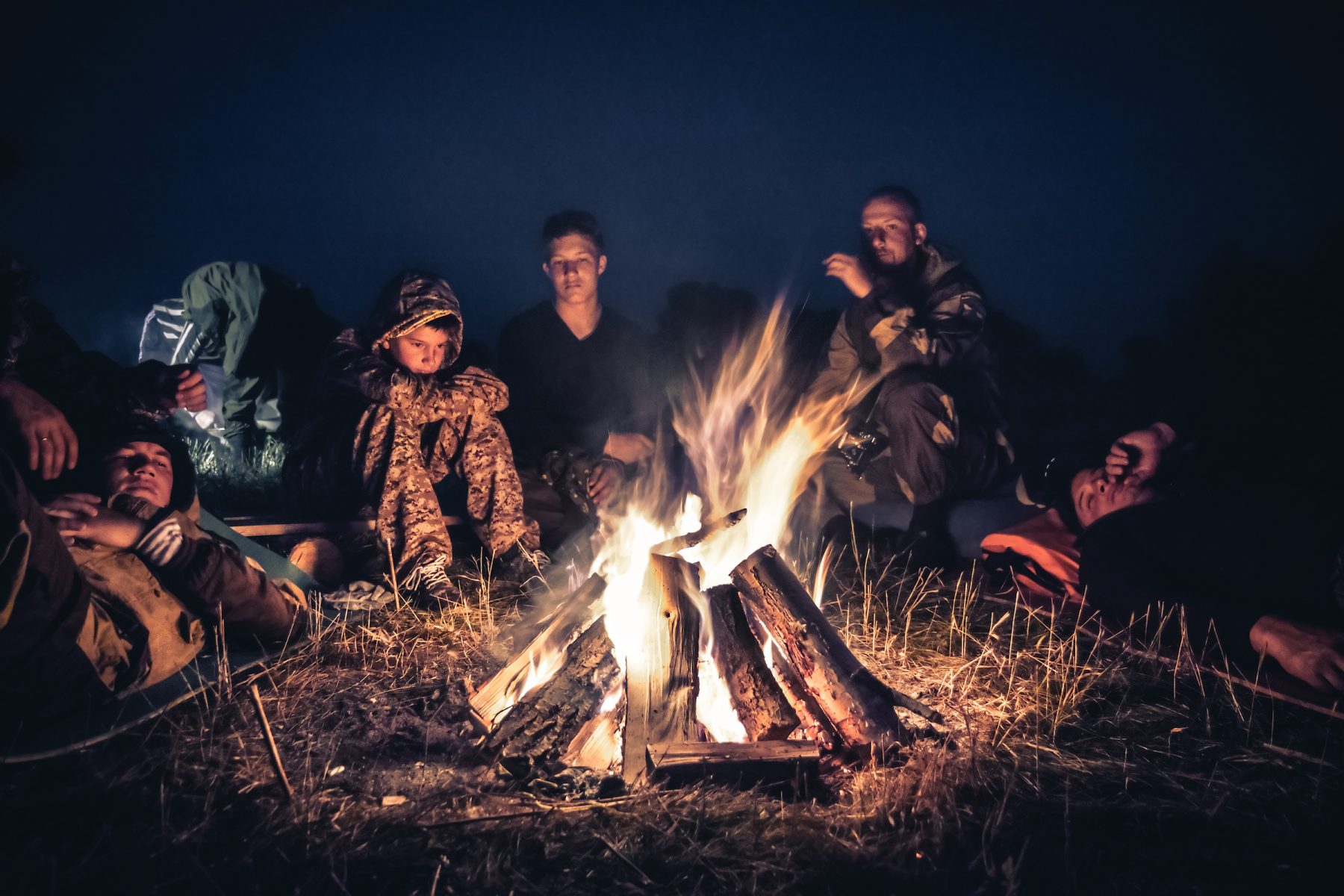
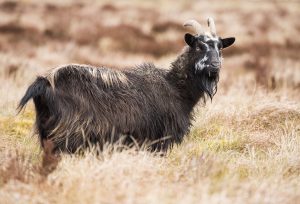
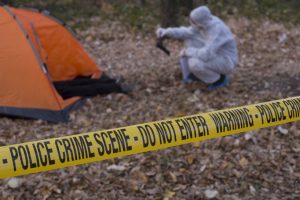
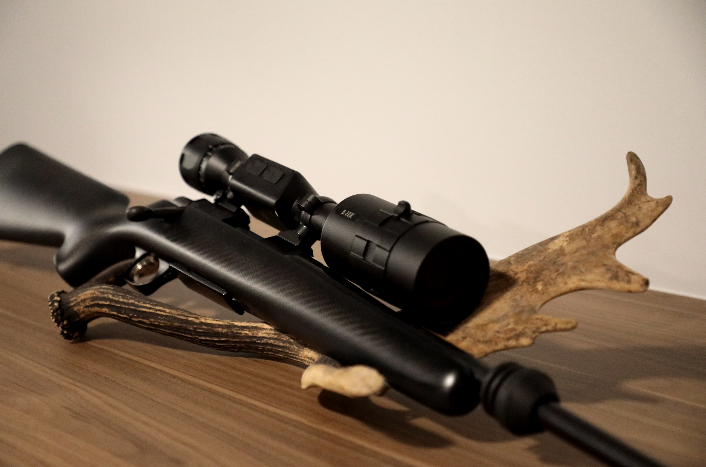
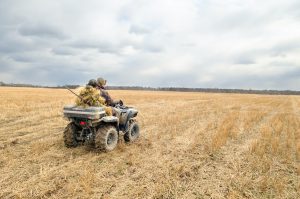
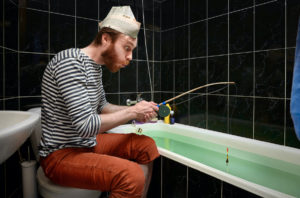
One thought on “How to talk to non-hunters about hunting”